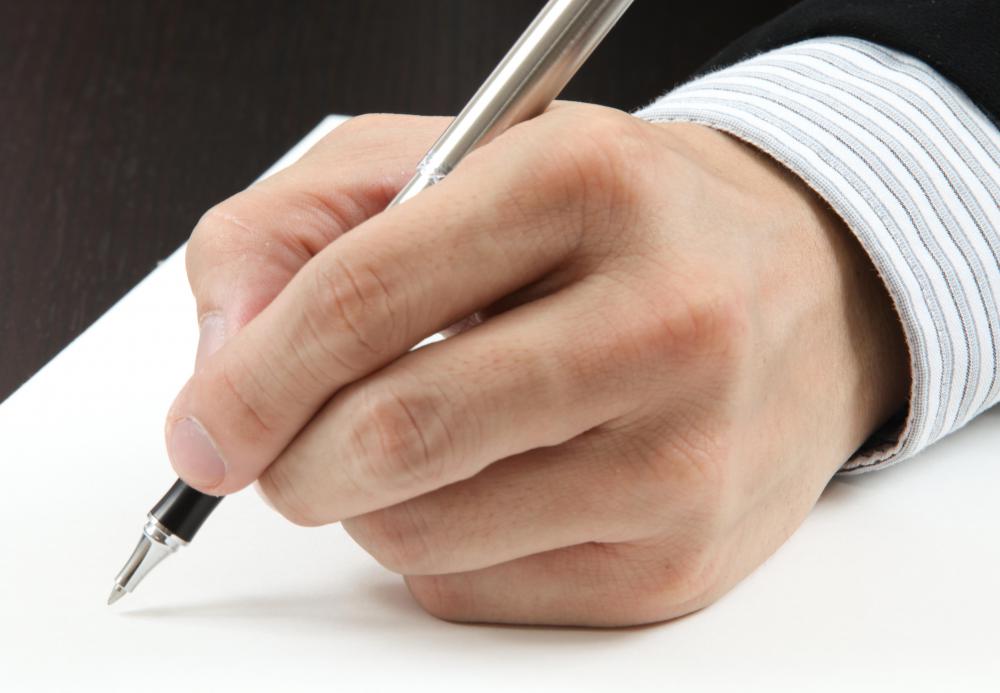At WiseGEEK, we're committed to delivering accurate, trustworthy information. Our expert-authored content is rigorously fact-checked and sourced from credible authorities. Discover how we uphold the highest standards in providing you with reliable knowledge.
What is Dysgraphia?
Dysgraphia is a learning disability that primarily affects handwriting ability. It is often discovered in early childhood during first lessons on reading and writing. People with dysgraphia often suffer from a lack of motor skills and may find other motor-related tasks difficult as well. In some adult cases, the condition has resulted from traumatic head injuries.
Some of the major signs of dysgraphia include confusion between upper and lower case letters, too large or too cramped spacing between letters and words, and writing letters backward or confusing similar-appearing letters such as “b” and “d.” People with the condition may have excellent verbal and reading skills, but cannot put words onto paper without serious concentration.

Children and adults with the condition typically exhibit very poor spelling and sometimes have no comprehension of punctuation. Their handwriting usually ranges from poor to illegible, and often worsens if they are in a hurry or not concentrating carefully on writing. Dysgraphia can be extremely frustrating to deal with, as the motor issues rarely have bearing on intelligence or comprehension.

There are several methods to deal with dysgraphia, both in and out of the classroom. While people who suffer from the condition should continually practice their skills to help improve legibility, certain allowances must be made for this disability. If you are a teacher with a dysgraphic student, consider allowing them extra time to complete written assignments or allow them to dictate their answers. Some people with the condition are able to type considerably better than they can write by hand, so you may want to allow students to use a computer for time-limited writing assignments or essays.

Dysgraphia may be a symptom of other conditions, and children exhibiting the signs should be monitored for other problems. According to some experts, the condition may be an indicator of Attention Deficit Disorder (ADD) or disabilities associated with hyperactivity. While dysgraphic people typically have problems with putting letters or words in sequence, they may also have a larger concentration problem. If a child shows symptoms consistent with ADD in addition to dysgraphic problems, you may wish to consult a doctor or therapist.

As science understands more about the human brain, it becomes clear that learning is done in a variety of ways, unique to each individual. The unfortunate problem of mass education is that students need to conform to a particular learning tactic in order to succeed in school. It is important to understand and educate children to know that a person is not “stupid” or “retarded” if they suffer from learning disabilities. They may be just as capable of intelligence and comprehension as any other person; but must find their own way to communicate their thoughts.
AS FEATURED ON:
AS FEATURED ON:

















Discuss this Article
Post your comments